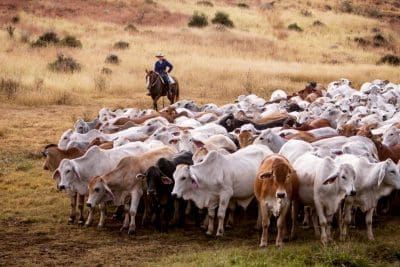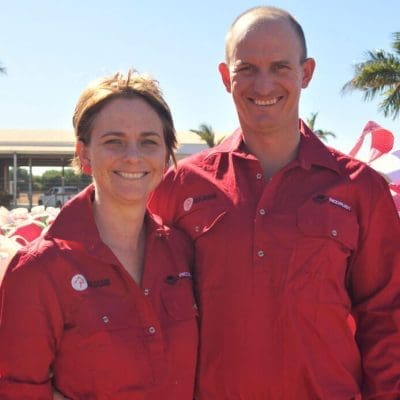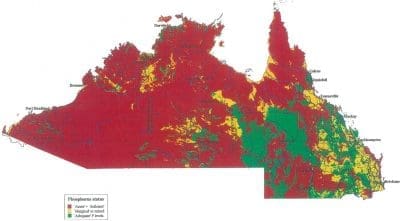
A SHORTAGE of a popular supplement for the northern cattle industry has emerged, with ships carrying phosphorus months behind schedule and prices rising considerably.
Researchers, consultants and industry have been pushing for more producers to use the product over the wet season, showcasing its benefits through several studies.
But suppliers and importers across the north have told Beef Central, importing the product this year has been tough, which has made it hard to fill orders.

Peter McHugh
Peter McHugh, from Townsville’s Causeway Beef Nutrition, said product he ordered from Europe was three months behind schedule, with most of it locked up for existing clients.
“I’m short about 15 containers for this month and then I have another issue with 21 containers coming in December,” Mr McHugh said.
“But after they come in, I should have enough phosphate to last me until the second quarter next year.”
Mr McHugh said prices were also on the rise, particularly for the product booked for early next year.
“Normally we would be selling for about $1250 for bulk buys, but that will now go to over $1800 or higher,” he said.
“I will have to average my prices this year accordingly to accommodate next year.”
China still taking feed phosphate orders

Sophie and Russell Cooke. Source: Red Range Stock Supplements
Russell Cooke from Red Range Stock Supplements in Kununurra, Western Australia, said he recently ordered phosphorus from China.
“Generally, we have good lines of supply and they have been taking orders for delivery between now and January/February,” Mr Cooke said.
“Currently our suppliers have stopped taking orders because there is no more space for additional product to be shipped before December.”
Mr Cooke said some orders he recently made this year were still was sitting at ports in Singapore and Hong Kong, months after they were due to arrive.
“We really need to have all our phosphorus in the country by September to ensure our customers can have it in the paddock by October – before the wet season starts,” he said.
“We are still unsure when some of the product sitting in Hong Kong and Singapore will arrive in Australia.”
Mr Cooke said the product he ordered was considerably more expensive than last year, and has been told most of the price increases are due to COVID-related factors.
“Both phosphorus and urea have more than doubled over the past six months,” he said.
“Everywhere in the world will give you different reasons to what is driving it.”
Products ordered for next year
Like many other supplement suppliers who spoke to Beef Central, Mr Cooke has already started trying to lock up supplies for next year.
“We really want to ensure our customers have access to phosphorus,” he said.
“Having access to the product next year will be extremely important, with supply being so tight.”
The same sentiment was echoed by Longreach-based livestock management consultant Désirée Jackson, who said she had been urging her clients to order enough phosphorus supplements to take them through to the end of the wet season next year.
She said she was recommending they consider looking into pre-ordering dry season supplements.
“Shortages of other products, like urea, are also likely to drive up prices of dry lick,” Ms Jackson said.

Désirée Jackson
“There appears to be a general trend with imported lick commodity ingredients becoming more expensive.”
Ms Jackson said she had also experienced issues with specific protein meals either becoming short in supply or running out.
“At this pointy of the season, it can be quite risky to change over ingredients. Livestock become accustomed to their supplements, and changing over ingredients can potentially reduce their intake, or worse, increase their intake significantly.”
“Where possible, producers should give serious consideration to ensuring they have adequate supplements to get through the wet season, and if feasible, forward contracting commodities to ensure they have enough supplement going forward into the new year.”




HAVE YOUR SAY